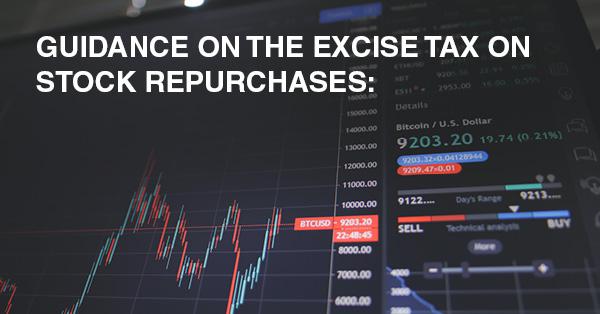GUIDANCE ON THE EXCISE TAX ON STOCK REPURCHASES:

The Inflation Reduction Act of 2022 included a new, nondeductible 1% excise tax on "repurchases" of the stock of "covered corporations" occurring after December 31, 2022.
The act provided that a "covered corporation" generally is a domestic corporation, the stock of which is traded on an established securities market, and a "repurchase" is a redemption under Section 317(b) of the Internal Revenue Code of stock of the covered corporation and any other transaction determined as such by the Treasury.
The Treasury Department and the Internal Revenue Service released Notice 2023-2 providing interim guidance for the new excise tax on repurchases of corporate stock beginning January 1, 2023.
Under IRC Section 317(b) a redemption is an acquisition by a corporation of its stock from a shareholder in exchange for cash or other property (other than stock, or rights to acquire stock, of the corporation). So, a redemption and, thus, repurchase, clearly includes open market repurchases, other ordinary stock buybacks, and any other acquisition of stock by the issuing corporation from its shareholders in exchange for property.
But the scope is potentially much broader under the literal language of the statute. Treasury guidance was anxiously awaited by tax professionals since it was unclear whether it would apply to certain transactions that do not appear to be stock buybacks in the traditional sense or raise the same policy issues as traditional stock buybacks.
Key areas covered in Notice 2023-2 include:
- Split-off transactions are treated as repurchases, but divisive transactions under Section 355 aren't treated as repurchases.
- The deadline for payment of the excise tax will be the same as the filing deadline for Form 720.
- Stock is treated as repurchased and issued when ownership of the stock is considered transferred for U.S. income tax purposes. Specific examples are provided.
- Examples provide analyses of excise tax implications for a number of different types of transactions between acquiring and target corporations.
- There are situations where a foreign corporation's purchase of its own shares can be subject to the excise tax.
- Examples are offered where safe harbors exist for determining the fair market value of stock that is repurchased or issued.




